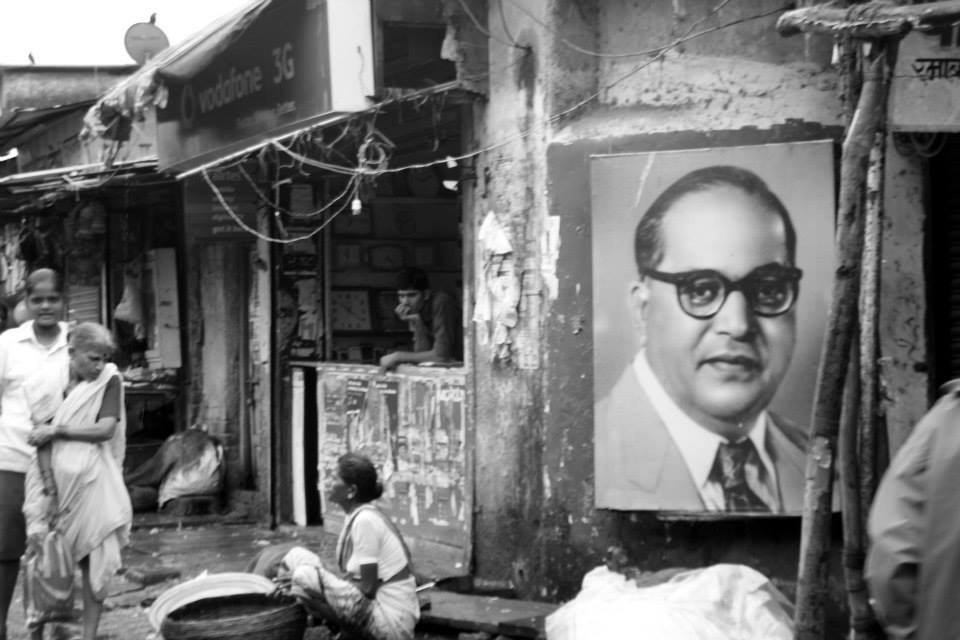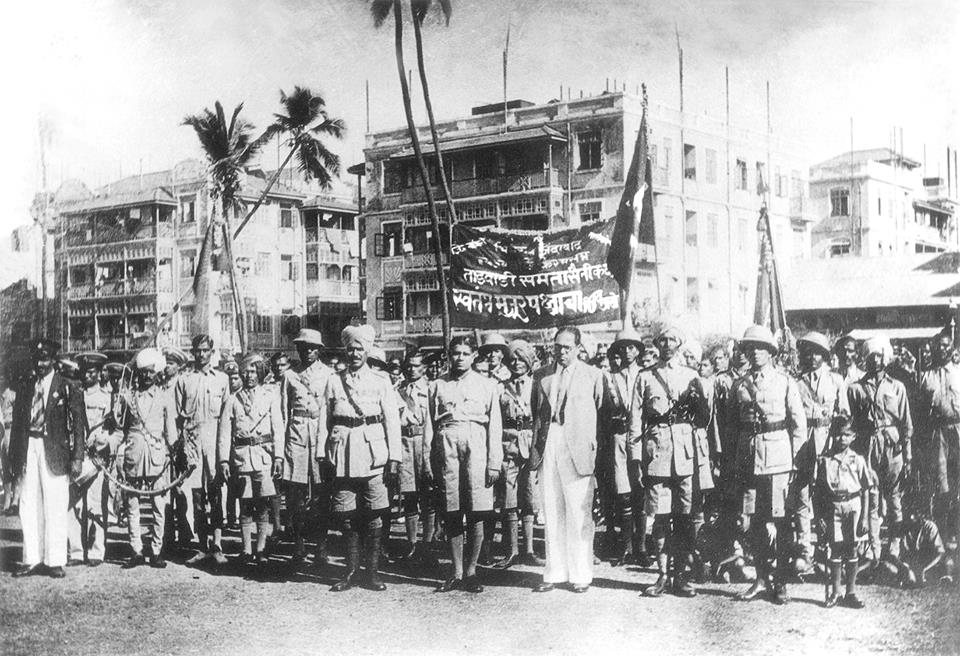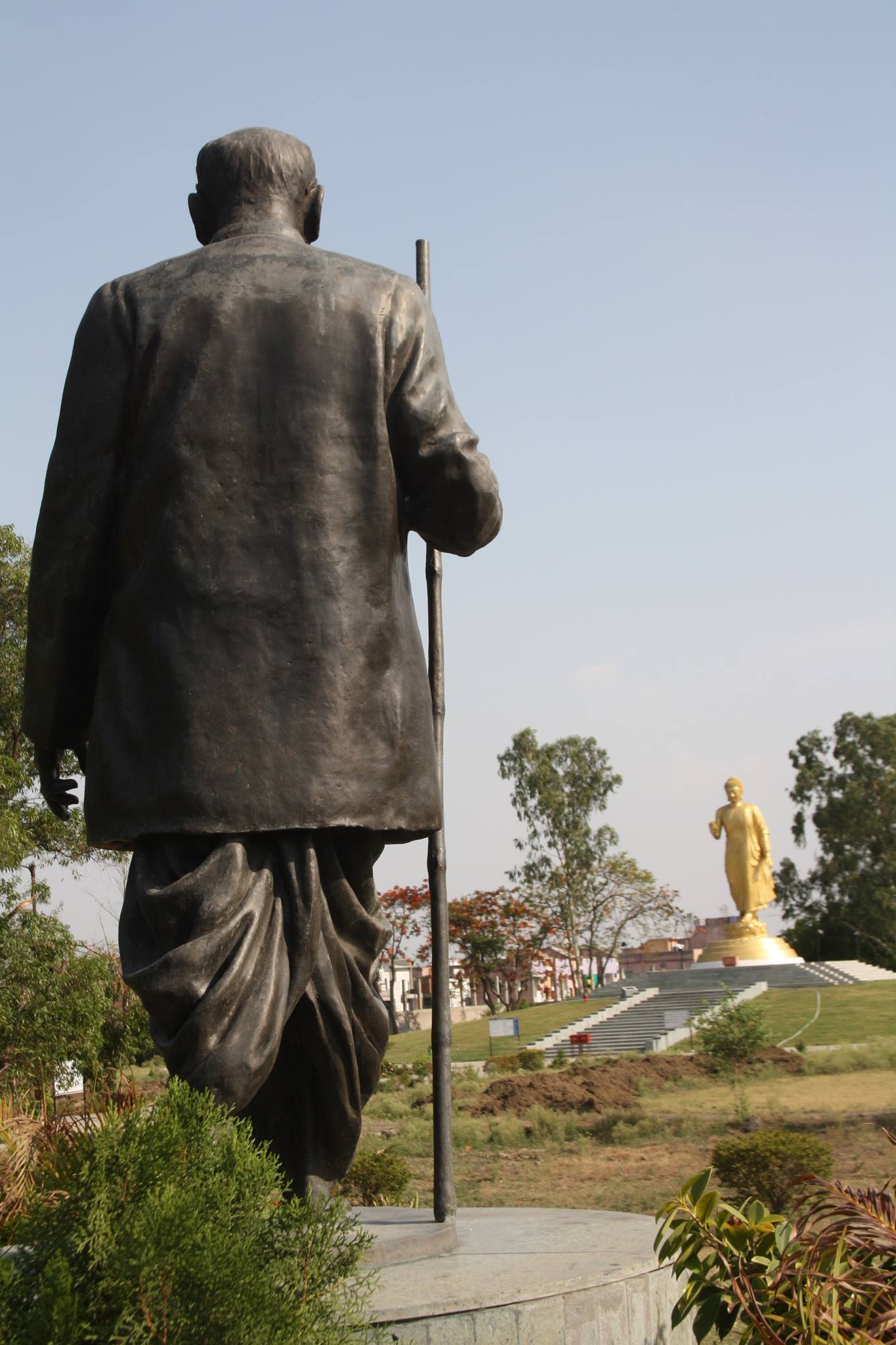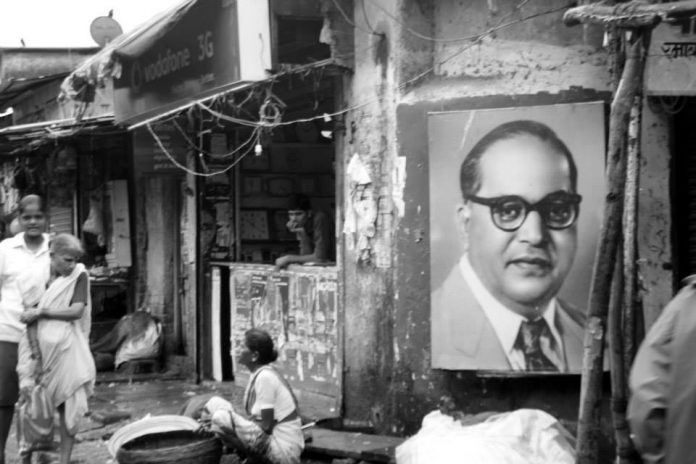
By Yogesh Maitreya, TwoCircles.net
All photos by Daisy Katta
August 15 has come and gone; delved into, reflected upon, and discussed at length. Yet, the familiar feature among most of the ‘coverage’ once again focused on the role of upper-caste leaders, the sufferings of the upper-caste communities and the struggles of the upper-caste societies.
A day before India’s 70th Independence Day, popular English media in India started flaunting upper-caste figures such as Gandhi and Nehru who were associated with the struggle for Independence. Much of the narratives and the history they mentioned about these upper-caste personalities were subtle propagandist in nature and, seemed to be affected by intellectual torpor. Conversations on Independence brought about the ‘glorious’ past of upper castes, now settled in USA and UK majorly, and how partition and Independence became for them a metaphor for their ‘sufferings’.
On the other hand, narratives of Dalits about Independence, as usual, were deliberately kept aside as if they and their idea of Independence, have never been existed. However, it is only in Ambedkar, we find what does Independence mean for Dalits and India. This is because Ambedkar belonged to an ‘India’ that has rarely accepted him.

It is no surprise then that when TwoCircles.net spoke to JV Pawar, one of the founding members of Dalit Panthers in Maharashtra, and the author of more than two dozen books, he said, “We don’t have real freedom. Social freedom is the real freedom. Nowadays, we don’t bother about understanding the meaning of freedom. When social equality will be established between people across all castes, that would mean freedom in a real sense. But in India, there is no real freedom now”
In a recently published article on RoundTable India, Kuffir Nalgundwar, one of the most outspoken anti-caste intellectuals of our times, wrote:
“This year marks the 100th anniversary of the Russian Revolution. It’s been over 25 years since the formal dissolution of the Soviet Union. Babasaheb was proved right: Can you have economic reform without first bringing about a reform of the social order? (Annihilation of Caste) And the Indian state turned 70 yesterday. Babasaheb had warned political reform would be meaningless without social and economic reform. And he has been proven right again. Even political democracy has not been translated into a substantive reality; Mayawati’s angry exit from parliament is the starkest pointer in recent times. In fact, since the seventies, political freedom has become an even thinner proposition.”
Both the observations made by Nalgundwar and Pawar are, in some ways, an extension of what Babasaheb felt three years after we had achieved ‘Independence’. In 1950, the March issue of The Reader’s Digest mentioned: Then one morning, as Ambedkar was leaving his room at an inn, he saw a dozen Parsis-members of a select caste armed with clubs coming up the stairway. “Get out! Get out!” they shouted. He fled for life. Unable to find lodging he wrote to Maharaja Gaekwad, who referred him to his Prime Minister. But the Prime Minister, the highest official in the Maharaja’s state, told him, “Sorry, I can do nothing.”
It wasn’t Ambedkar’s first experience of facing the monster of caste, but it was certainly the first that shattered this highly educated man from Columbia University. In his ‘Waiting For Visa’, perhaps the only autobiographical account he had written, he mentioned, “My five years of staying in Europe and America had completely wiped out of my mind any consciousness that I was an untouchable, and that an untouchable wherever he went in India was a problem to himself and to others. But when I came out of the station, my mind was considerably disturbed by a question, “Where to go? Who will take me?” I felt deeply agitated. Hindu hotels, called Vishis, I knew there were. They would not take me. The only way of seeking accommodation therein was by impersonation. But I was not prepared for it because I could well anticipate the dire consequences which were sure to follow if my identity was discovered–as it was sure to be.” Further, unable to find lodging after this incidence, the situation and the terror of caste system made him weep.

He came back to Bombay to start the life anew. With the help of his friend Mr Bhatia and Prof. K.B. Irani, he sought teaching opportunities at two Parsi households. He was earning Rs 50 per month from each family. However, this wasn’t enough for him and his family’s survival and he wanted to save money to pursue further education as well. As a trained economist from Columbia University, in Bombay at Dalal Street, he started the company called ‘Stocks And Shares Advisers’. He started advising two businessmen-Shetaji and Bhataji-who were involved in ‘stocks and shares’ business. Initially, Babasaheb got many clients. But as soon as the news spread across that this company belonged to a Dhed (untouchable), none of them returned for his advice. He had to shut down his company. This incidence wasn’t just a simple anecdote of cast prejudices which Shetaji and Bhatajis possessed for centuries, but the point of arrival for Ambedkar in which he saw first hand that caste is the monster, a disease, that affects the capitalist minds too.
These two experiences from his life, provided and shaped his perceptions to look at caste system as well as Indian society at large. Further, despite all the economic challenges, humiliations at the hands of Brahmins and upper-caste leaders and masses, he went on to make himself stronger for the battle he had to fight. For the meaning of liberation he had to create for his people, to do the justice with the responsibility of liberating his people that the history bestowed on him. He wanted to liberate the society infected with the disease of caste. After his death, the movement he had started, witnessed the chain of fractionalisation in the political sphere. However, in the domain of literature and social struggle, his ideas have been influencing Dalits unabatedly. And despite some level of fractionalisation, his influence in the field of politics is still strong? The rise of Dalit literature is the phenomenal process that caught up the attention of the world. Writers who were neglected as human beings, have asserted themselves through the beauty and power of the pen; in their persuasion of human personality, Ambedkar has always remained the force, inspiration and more importantly, a theory, upon which all of Dalit literature flourished. After accomplishing his responsibility of being the architect of Indian Constitution, he was found to say: However good a Constitution may be, if those who are implementing it are not good, it will prove to be bad. However bad a Constitution may be, if those implementing it are good, it will prove to be good. At another occasion, he said: Cultivation of mind should be the ultimate aim of human existence. For him, the meaning of Independence did not lay in achieving freedom from foreign invaders or merely changing the political structure; his idea of Independence was primarily found in ‘the change in epistemology’, the mind, the origin of ideas and actions within society.
His experiences in the caste society were bitter yet he had always possessed the golden heart that manifested his quest for establishing liberty, equality and fraternity in the caste-ridden society. And what can be the best example to revisit his vision and idea of Independence than the Indian Constitution through which, with one stroke of a pen, millions of untouchables had reclaimed their human personality and started writing beautiful, powerful stories of their struggle, and their idea of the society that would be truly independent?


